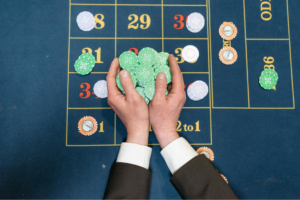No, the mere thought of squash bugs being harmful is nonsense! Squash Bugs are a type of beetle that live in North America and feed on plants. They like to eat leaves, flowers and roots from your garden.
Squash bugs are a type of beetle that is commonly found in gardens. These beetles feed on plants, and they can be harmful to humans and dogs. They are not known to carry any diseases or parasites.
A: While squash bugs’ saliva is hazardous to plants and may spread cucurbit yellow vine disease, neither the saliva nor any other element of the insect is dangerous to people. When disturbed or crushed, however, they may and do stink.
Do squash bugs, as a result, bite people?
Although squash bug saliva is not poisonous to humans, it does contain plant poisons. The plant’s capacity to circulate water and nutrients is disrupted, causing the leaves and fruit to wilt. Squash bug damage may kill a plant, and the insects are thought to carry the bacterium that causes cucurbit yellow vine disease.
Also, what is the best way to get rid of squash bugs without using chemicals? Spray and Treatment with Natural Ingredients Fill a spray container halfway with water and a little bit of liquid Castile soap for a DIY squash bug spray. Spray the damaged plants first thing in the morning, aiming for the plant’s base and the undersides of the leaves.
Aside from that, how can you get rid of squash bugs?
If you see squash bugs in your garden, use one of the three techniques listed below to get rid of them.
- Remove the eggs using a scraper.
- Adult bugs should be picked and flicked.
- Make a night trap.
- Cover the plants with row covers.
- Squash types that are resistant to insects should be planted.
- Make your garden uninhabitable to overwintering insects.
Is Dawn dish soap effective in killing squash bugs?
Half-fill a glass jar or plastic container with water and 1 tablespoon liquid dishwashing soap. Spray the diseased plants with water from your garden hose. Squash bugs like to hide during the day, and they blend very nicely with the foliage and vines.
Answers to Related Questions
How can I get rid of squash bugs for good?
Squash Bugs and How to Get Rid of Them
- It’s crucial to detect cancer early!
- In the morning and later in the day, pick egg masses off the plants.
- At night, place a board or shingle in the garden.
- As insecticides (such as carbaryl/Sevin) are administered when the eggs are hatching, they are most effective.
- Keep an eye on your plants at least once a day.
What draws squash bugs in?
Finally, alongside your squash and cucumbers, plant alyssum, calendula, daises, dill, fennel, and mustard greens. The Tachnid fly, a helpful insect that preys on squash bugs, will be attracted to their tiny, pollen- and nectar-rich blossoms.
Are marigolds effective in warding off squash bugs?
“The link between plants and insects is known as ‘companion gardening.’” Marigolds are simple to cultivate and help keep aphids away. Mexican bean beetles, squash bugs, thrips, tomato hornworms, and whiteflies are all deterred by annual marigolds.
What pesticide is effective against squash bugs?
Squash bugs and more than 500 other insect pests, including stinkbugs, are killed by contact with Sevin® Insect Killer Ready to Use. Squash, pumpkins, cucumbers, and melons may be treated up to one day before harvest.
Squash bugs are eaten by ladybugs.
Allow predators of squash bugs to live in your garden. The tachinid fly and sceleonids are predators. Squash bugs are eaten by praying mantises, but they may also devour ladybugs and other beneficial insects.
Squash bugs may be found in a variety of places.
As adults, squash bugs may survive the winter in protected areas such as plant waste, behind buildings, or beneath rocks. When the adults emerge in the spring, they fly to cucurbit plants that are growing to eat and mate.
What are the causes of squash bugs?
Squash, pumpkins, cucumbers, and other closely related plants are harmed by nymphs and adults sucking sap from the leaf and vines. They pump a harmful chemical into the host plants as they eat, causing them to wilt.
Is neem oil effective against squash bugs?
Even when squash bugs threaten to take over, nontoxic insecticides like neem oil make organic and safe farming feasible. Squash bugs are prevented from sucking sap from the leaves by neem oil and neem oil-based insecticides. Honeybees and other helpful insects are also poisoned by neem oil.
What’s the best technique to keep squash bugs at bay?
Planting repellant plants with your squashes may also help reduce squash pests. Nasturtiums and white icicle radishes are two of the most frequent plants that repel squash bugs. Other plants in your garden that give protection and prevent squash bugs are oregano, marigold, calendula, and dill.
How can you get rid of squash bugs naturally?
- Diatomaceous earth (DE) is a fantastic pesticide that may be used to organically kill squash bugs.
- Squash bugs and nymphs are easily killed with organic insecticidal soap.
- Nasturtium is a natural insect repellent that may be used in conjunction with other plants.
Squash plants are eaten by what sort of bugs?
One of the most frequent and bothersome pests in the home vegetable garden is the squash bug (Anasa tristis). This sap-feeding insect commonly kills squash plants. Plants bitten by the pests’ leaves may wilt quickly and become brittle.
What is the best way to protect squash from decaying on the ground?
If your soil’s pH is too low, use lime to raise it. Add gypsum – Gypsum will aid in the addition of calcium to the soil, making that nutrient more accessible. If squash blossom end rot emerges, remove the afflicted fruit and spray the plant with a calcium-rich foliar spray to treat the issue.
How can you keep squash borers at bay?
Prevention and Control
- You may physically remove the squash vine borer if you detect them very early.
- Alternatively, if you see entry holes and “sawdust,” try threading a wire through the stem for a short distance to kill the inner larvae.
- When the squash vines are young, sprinkle diatomaceous earth around the stalks.
What is the best way to prune squash?
Cut each squash vine back until only two or three buds remain per vine. Cut the extra vine away at a leaf junction with a sharp pruning knife or gardening shears. To help protect the exposed vine end from disease, do each cut diagonally.
Why do the blossoms on my zucchini plants fall off?
If pollination between the male and female blooms is inadequate, zucchini blossoms will fall off the vine. A shortage of pollinators such as bees or butterflies, excessive humidity that causes pollen to clump, wet weather, or a lack of male blooms may all cause poor pollination.
What is it that is consuming my zucchini flowers?
Rats, rabbits, raccoons, ground hogs, skunks, and deer are among the critters that may eat your zucchini blooms. And it’s understandable if you’ve ever eaten zucchini blooms; they’re delicious! Once the creatures have a taste for this delectable spread, they’ll be back for more.
Is diatomaceous earth effective against squash vine borers?
Is diatomaceous earth effective against squash vine borers? Yes. But it’s not very effective, and won’t work once they are protected inside of the vine.













